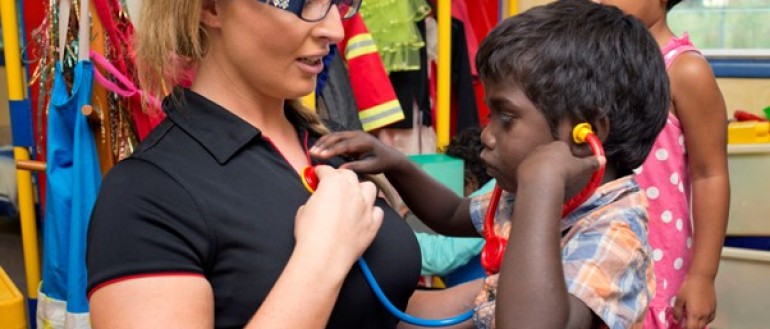Aims:
- To identify a collection of co-ordinately regulated biomarkers that describe a unique inflammatory signature for Acute Rheumatic Fever (ARF)
Objectives:
- To develop a bead-based array tailored on the biomarkers identified in 1) to serve as a dedicated diagnostic test for ARF
- To use the information from 1) to explore potential immunomodulatory therapeutic options for ARF.
Summary:
Acute Rheumatic Fever (ARF) is caused by a group A streptococcal (GAS) infection. It mostly affects children 6-14 years of age. Recurrent episodes of ARF lead to cumulative heart valve damage and the development of Rheumatic Heart Disease (RHD). RHD is a chronic, sometimes fatal, disease that often requires heart valve surgery.
Even though RHD is preventable, Australia has the highest recorded rates of the disease in the world. Indigenous people are up to eight times more likely than non-Indigenous Australians to be hospitalised for Acute Rheumatic Fever (ARF) and RHD. They are 20 times more likely to die from the condition too.
Timely diagnosis of an initial ARF episode and subsequent use of antibiotic prophylaxis is the best method of preventing RHD. At present diagnosis is based on fulfilment of a range of major and minor clinical criteria according to the revised Jones criteria. Misdiagnosis of ARF is a major contributor to the high rates of RHD seen in Indigenous communities in the NT with 29% of patients with supposed “primary” episodes of ARF already having established RHD. Despite a clear need, there is no definitive method of diagnosing ARF.
Implications for policy and practice:
This study aims to use gene expression microarray and protein array technologies, coupled with comprehensive flow cytometric analyses and functional assays to identify an inflammatory signature that describes and confirms ARF in blood samples. This will aid in gaining new insights into ARF pathogenesis and form the basis for the development of new diagnostics and therapeutics for ARF.
Project manager:
- Melita McKinnon
Contact information:
- Melita McKinnon
Project dates:
The study will run until 2015.
Funders:
- National Health and Medical Research Council (NHMRC).
Collaborators:
- Walter and Eliza Hall Institute (WEHI).

